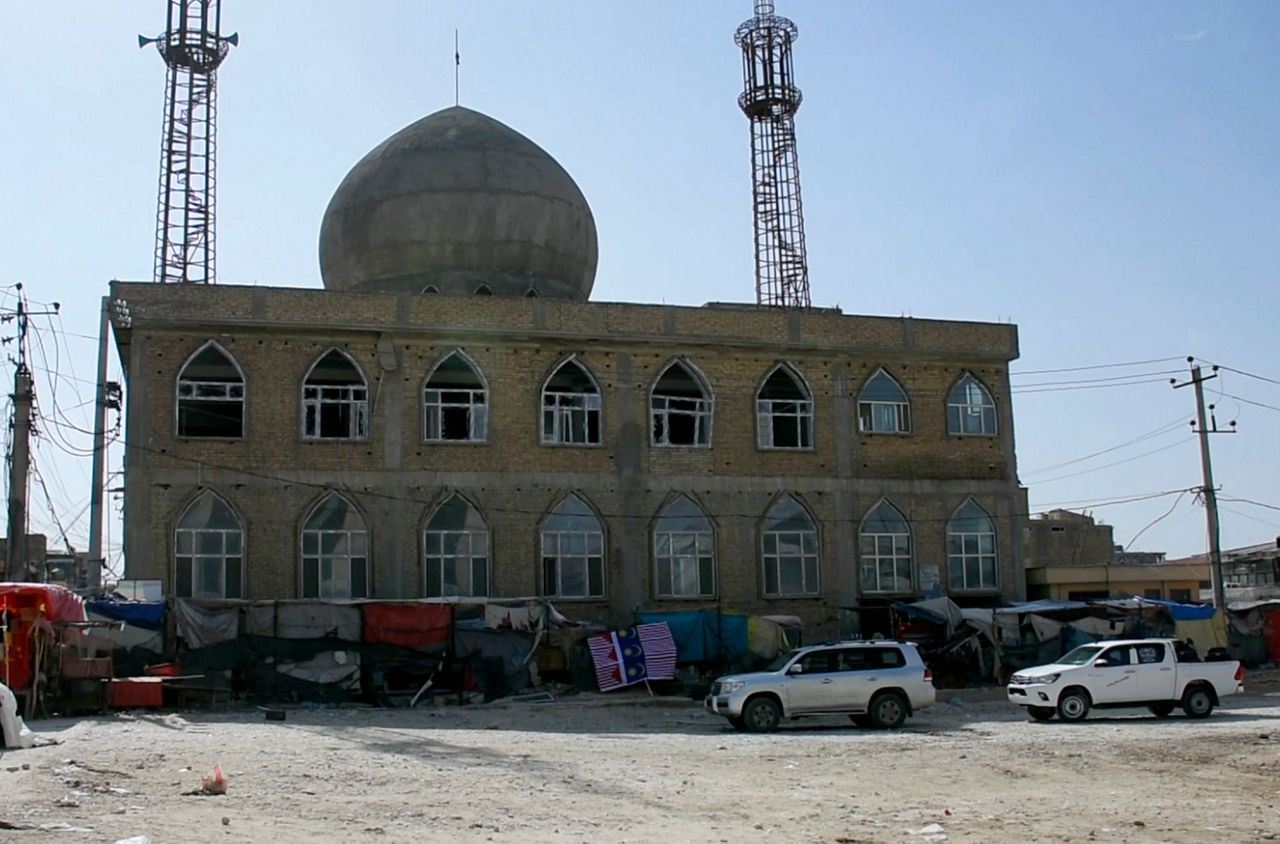KABUL, Afghanistan (AP) — A series of explosions across Afghanistan on Thursday killed at least 10 people and wounded scores more, according to police and hospital officials.
No one immediately took responsibility for the deadly explosions, but they mostly targeted the country’s minority Shiite Muslims and had all the hallmarks of a deadly Islamic State affiliate known as Islamic State in Khorasan Province, or IS-K.
The worst of the three attacks occurred in northern Mazar-e-Sharif where at least 10 worshippers were killed as they knelt in prayer, said Dr. Ghawsuddin Anwari, head of the main hospital in northern Mazar-e-Sharif. Another 40 were injured. They were brought in ambulances and private cars.
The explosion at the Sai Doken mosque in northern Mazar-e-Sharif occurred as Muslims mark the holy month of Ramadan, when the faithful fast from sunrise to sunset.
Earlier Thursday in the capital, Kabul, a roadside bomb exploded and injured two children. That bomb also targeted the country's minority Shiites, striking in the Dasht-e-Barchi neighborhood of Kabul, dominated by Afghanistan's minority Shiite Muslims.
Two days earlier in the same area, multiple explosions targeting educational institutions killed at least six people, mostly children, and wounded 17 others.
A third explosion Thursday, this one in northern Kunduz province, struck a vehicle carrying mechanics contracted by the ruling Taliban, according to Matiullah Rohani, head of information and culture in Kunduz province.
Thursday's series of deadly explosions comes after months of relative calm in Afghanistan and after a crackdown against the IS-K by the country's Taliban rulers in the first months following their sweep to power.
The IS affiliate, which has been operating in Afghanistan since 2014, is seen as the greatest security challenge facing the country's Taliban rulers. Following their August takeover, the Taliban launched a sweeping crackdown against the IS headquarters in eastern Afghanistan.
Meanwhile, advocates for the minority Hazaras called for a stop to the killings. Hazaras, who make up around 9% of the population of Afghanistan's 36 million people, stand alone in being targeted because of their ethnicity — distinct from the other ethnic groups, such as Tajik and Uzbek and the Pashtun majority — and their religion. Most Hazaras are Shiite Muslims, despised by Sunni Muslim radicals like the Islamic State group, and discriminated against by many in the Sunni-majority country.
The Islamic State affiliate has previously targeted schools, particularly in the Shiite-dominated Dasht-e-Barchi neighborhood. In May last year, months before the Taliban took power in Kabul, more than 60 children, mostly girls, were killed when two bombs were detonated outside their school, also in the Dasht-e-Barchi neighborhood.
Dasht-e-Barchi and other parts of western Kabul are houses to the Shiite minorities of Afghanistan which have mostly been targeted by the Islamic State affiliate loyalists, however, no one has claimed credit for the recent explosions.
____
Associated Press Writers Tameem Akhgar and Rahim Faiez in Islamabad contributed to this report
Copyright 2022 The Associated Press. All rights reserved. This material may not be published, broadcast, rewritten or redistributed without permission.




